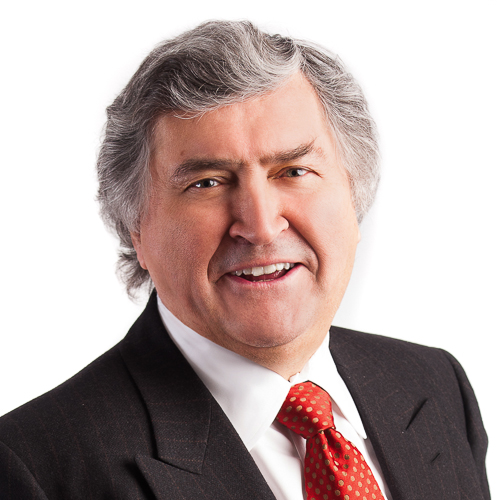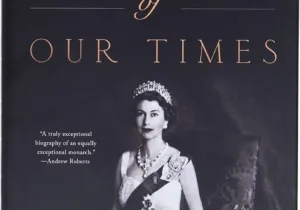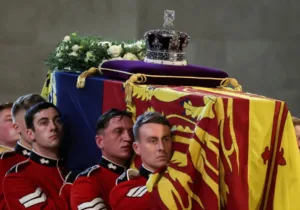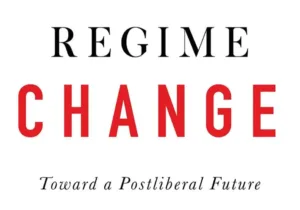What is now called “integralism” or “post-liberalism” comprises varied authors, influences, and ideas. Even so, a common theme is that America’s founding can basically be characterized as “liberal” and that the liberalism of the founding, as Patrick Deneen contends, inevitably leads to our present political and cultural woes.
Deneen runs counter to conservatives who claim that it is deviation from the founding that is the source of our problems, arguing instead that our current problems are the fulfillment of the nearly 250-year-old-American constitutional experiment. Further, as he writes in Why Liberalism Failed, “the loosening of social bonds in nearly every aspect of life—familial, neighborly, religious, even national—reflects the advancing logic of liberalism and is the source of its deepest instability.”(emphasis added) The term “advancing logic” suggests that once the initial ideas have been accepted, then, years or even centuries later, a particular type of polity must necessarily follow.
Politics does not usually allow for experiments with parallel control groups to test whether ideological sources necessarily lead to particular polities, and history and geography are usually too complex to provide truly comparative examples. Nevertheless, it is illuminating to compare the United States and Canada, which share a continent and have their origin in America’s revolution 250 years ago. One accepted what may plausibly be called liberalism and the other rejected it. Hence, with many caveats, they can provide useful points of comparison, and give a cautionary tale.
UNITED EMPIRE LOYALISTS
One of the major shaping influences of English-speaking Canada was the “United Empire Loyalists,” those who sided with the British Crown during the American War of Independence and moved to what is now Canada either during the war or after the American victory and the signing of the Treaty of Paris (1783). These included soldiers and civilians, especially from New York and northern New England. Some were evacuated, including from New York City, when they were attacked. Migrations continued into the 1790s and between 80,000 and 100,000 people eventually fled, about half of them to Canada.
Loyalists are sometimes mistakenly depicted simply as members of a suddenly disfavored colonial elite, but they also included farmers, laborers, and tradespeople, and their families. They also included several thousand Native Americans, mainly drawn from the Iroquois Nations, especially Mohawk, Seneca, Onondaga, and Cayuga. They remained loyal to Great Britain, with whom they had stronger relations and already established treaty obligations. There were also several thousand Black Loyalists, though they often had a difficult time. Some white Loyalists brought slaves with them, perhaps 2,000 in total since slavery remained legal in some British North American colonies until 1834.
It would be an exaggeration to see all or perhaps most Loyalists as driven solely by a primal commitment to Crown and Church. The British gave financial incentives to those who would settle in the north, and many came in the 1790s because, amazing to consider now, taxes in Canada were very much lower than in the U.S. Canadian historian W.L. Morton avers that John Graves Simcoe, Lieutenant-Governor of Upper Canada, “advertised like any land agent through the northern states for American Settlers.”
LOYALIST INFLUENCES
Despite these conflicting currents, the massive influx of Loyalists radically changed the demography of British North America, which hitherto had been largely French-speaking. The Province of Quebec now had large English-speaking populations both to its east and west. By the time of the War of 1812, of the 110,000 inhabitants of Upper Canada (now Ontario), some 20,000 were initial Loyalists, 60,000 were later American immigrants and their descendants, and 30,000 came from the UK or Quebec.
This meant that over half of Anglophone Canadians were people who had left the U.S. or were descended from those who had. Previously, the terms Canadian and Canadien referred to indigenous peoples or the settlers of New France in Quebec. Now it was applied to the expanding English-speaking population. They had become Canadians. Longer-term Loyalist influences on Canada are still evident. The mottoes of some Provinces that received Loyalists reflect this history: Canada’s dominant province, Ontario, still has on its coat of arms the motto Ut incepit fidelis sic permanet (“Loyal she began, loyal she remains”); New Brunswick has Spem Reduxit (“Hope restored”).
While there were material and pecuniary factors, many Loyalists sincerely rejected nascent America and were committed to Church and Crown. They had rejected the more individualist republic, and in principle were loyal to the state Anglican church. However inchoate their beliefs, they were shaped by their flight from America. Most of their elites believed that, since they were rooted in the British constitution, they had little to learn from the upstart and chaotic Yankees to the south. American independence was instead believed to have revealed defects in the old colonial American institutions, including a weak executive and an excess of democracy. Hence, these new inhabitants sought to shape the institutions of British North America to avoid these alleged deformities.
This provided the foundation for a distinct independent country in North America. In place of America’s “Life, Liberty and the Pursuit of Happiness” it emphasized “Peace, Order and Good Government,” a phrase that continued to appear throughout Canadian law and politics, including in the defining British North America Act, 1867 (now known as the Constitution Act, 1867). Bruce Wilson opines “Modern Canada inherited much from the Loyalists, including a certain conservatism, a preference for “evolution” rather than “revolution” in matters of government, and tendencies towards a pluralistic and multicultural society.” It was not a developed theory but akin to what Michael Oakeshott has called a “disposition.”
CANADIAN CRITICISM OF THE UNITED STATES
While Canadians often did not know what they were for, they knew what they had rejected–they were not Americans, they were not republicans, they did not rebel, did not reject an established church, and did not constitute a new polity. Canada was formed as an alternative to the United States and perhaps even a “counterAmerica.” Consequently, most Canadian assessments of the U.S. and of its constitution have usually been negative. In general, the U.S. was regarded as “too big, too unmanageable and too violent.”
The attitudes formed during the period of the American founding solidified in the early decades of the nineteenth century. This is exemplified by John Strachan, the first Anglican Bishop of Toronto, and founder of the University of Toronto, who shaped a generation of Tory politicians in Upper Canada. He was an eloquent and powerful critic of republicanism and advocated for Tory principles of hierarchy and subordination in both church and state. For Strachan “the two great experiments in America and France to constitute governments productive of virtues and happiness only… have completely failed ….” He “believed in an ordered society, an established church, the prerogative of the crown, and prescriptive rights; he did not believe that the voice of the people was the voice of God.”
Many Americans might reject these claims as antediluvian rants, but one of Strachan’s and others’ core concerns in resisting American influence, especially after the American invasion in 1812, was that it was seen as an attempt to extend slavery into the northwest, and would also jeopardize Canada’s indigenous people. Strachan fought strenuously against slavery and his conservatism always included defending the autonomy of indigenous peoples. He consistently called on Canadian settlers to embrace these “sons of nature” as brothers and this, together with his fervent opposition to slavery, shaped his fear of American expansion.
The occasional mid-century movements in the United States to annex Canada brought further outpourings of criticism. One accusation was that the United States was based upon “the blasphemous Whig assumption, that the people are the source of political power.” Indeed, “the United States remained what it had always been, a godless republic that had willfully denied the divine origins of government.”
Even for those rare few who found something to admire in the U.S., there still remained the overwhelming fact of slavery. As Bishop George Mountain, third Anglican Bishop of Quebec and the first Principal of McGill University, declared, slavery was a “monstrous anomaly… the political contradiction unsurpassed, rather unequalled, in the world.” The United States “vaunts itself aloud to the world, as the only really free country on earth [but has] practically disallowed the consanguinity of the family of man.”
Perhaps most striking was Thomas D’Arcy McGee, a man reminiscent of Alexander Hamilton. He was part of the Young Ireland movement attempting to overthrow British rule and escaped arrest only by fleeing to the United States in 1848. In America, his political views changed. He realized that individuality was a good but if it became alone and radical it eventually usurped many other goods. He gave support to Pope Pius IX and moved to Canada in 1857. In his new home he sought to persuade Irish Catholics to cooperate with the Protestant British to resist American influence by forming a Confederation within the British Empire. He has been described as ‘Canada’s first nationalist” and helped create Canada’s 1867 Confederation.’ He stressed that:
“Where the fault lies ab origine in the American constitutions, it is not hard to say. Their authors were so busy looking after their newfound liberty that they forgot that they too, could not long govern without authority. Recussants [sic] against authority they found it impossible to claim a due portion in the new constitutions for authority. They could not assert the divine origin of government, the natural right of man to be governed, the virtue of civil obedience, and all the other ethical truths, which must every one of them, enter into any human system that ever expects to merit the blessings of Divine Providence.”
This previously fervent, hunted, Irish nationalist fighting British rule escaped to America, but then rejected what he saw as a truncated liberal polity and thereafter moved to the forbidding northern climes to live under British rule. He became a major figure in the creation of Canadian Confederation, and he was assassinated by a Fenian Irish nationalist.
THE BASIC CRITICISM
The core Canadian criticism of America was that its supposed overemphasis on democracy and self-assertion would necessarily lead to impiety and irreligion. In 1905, Sir Wilfrid Laurier, Canada’s first Catholic and French-Canadian Prime Minister, while discussing Canadian public schools in the House of Commons declared:
“We live by the side of a nation in whose schools, for fear that Christian dogmas in which all do not believe might be taught, Christian morals are not taught…. when I observe in this country of ours, a total absence of lynchings and an almost total absence of divorces and murders, I thank heaven that we are living in a country where the young children of the land are taught Christian morals and Christian dogmas.”
Beyond these particular criticisms was a general fear of an American ethos. David Putter’s conclusion of a book-length survey of Canadian views of the U.S. parallels Deneen’s concerns:
“Perhaps, fundamentally, what Canadians sensed was that their culture and their system still largely accepted the principle of authority, while American society and the American system did not accept this principle in any comparable degree…. Canadians believed that the state, through some authority, should provide moral direction for the society it governed. Moral direction meant discipline, order, responsibility, obedience, even inhibition. America, too, has believed in discipline, order, responsibility, and the rest, but it has believed in them as self-imposed, through the acceptance of a Protestant ethic, not imposed by public authority.”
That historic Canadian sensibility was summarized by the late Canadian philosopher George Grant, “It was an inchoate desire to build, in these cold and forbidding regions, a society with a greater sense of order and restraint than freedom-loving republicans would allow. It was no better defined than a kind of suspicion that we in Canada could be less lawless and have a greater sense of propriety than the United States.” He also noted “their desire to build a political society with a clearer and firmer doctrine of the common good than that at the heart of the liberal democracy to the south.”
A POSSIBLE MORAL OF THIS TALE
History is complex and provides no knockdown arguments. But, as the statements above illustrate, English Canada has roots in those who rejected American individualism and instead accepted a privileged church, “peace, order and good government,” and a stress on the “common good.” In McGee’s words, they asserted “the divine origin of government, the natural right of man to be governed, the virtue of civil obedience, and all the other ethical truths, which must, every one of them, enter into any human system that ever expects to merit the blessings of Divine Providence.” In short, they sought to shape a polity on grounds that can plausibly be described as integralist.
Historically, English Canada has rejected American liberalism. Some remnants of this primal commitment are still shown in a strong welfare state, especially a state health system. But now it goes far beyond any U.S. state in its commitment to abortion, transgenderism, “medical assistance in dying,” and other modernist views, and especially in seeking to drive from the public realm those who dissent from the new morality. Quebec, with very deep Catholic roots, has gone much further.
There are many factors in this. Countries are shaped by far more than a liberal “logic” or anti-liberal founding, as Canada, both French and English, illustrate. Similarly, there is no bright line from America’s Founders’ and their predecessors’ purported destructive liberal views to our present situation. America’s nearest neighbor, founded on a rejection of those views, has now become even more ideological deformed than the U.S.
As Eric Voegelin has argued, liberalism is not an independent phenomenon but is shaped by often contingent responses to political and other events. An integralist claim that America’s founding in liberal principles has necessarily led us to our present troubles must reckon that an adjacent polity founded on the rejection of these same principles now has these troubles in much stronger measure. History and politics are complex and are more than the expression of ideas working their way through an internal logic, and therein lies both worry and hope.






